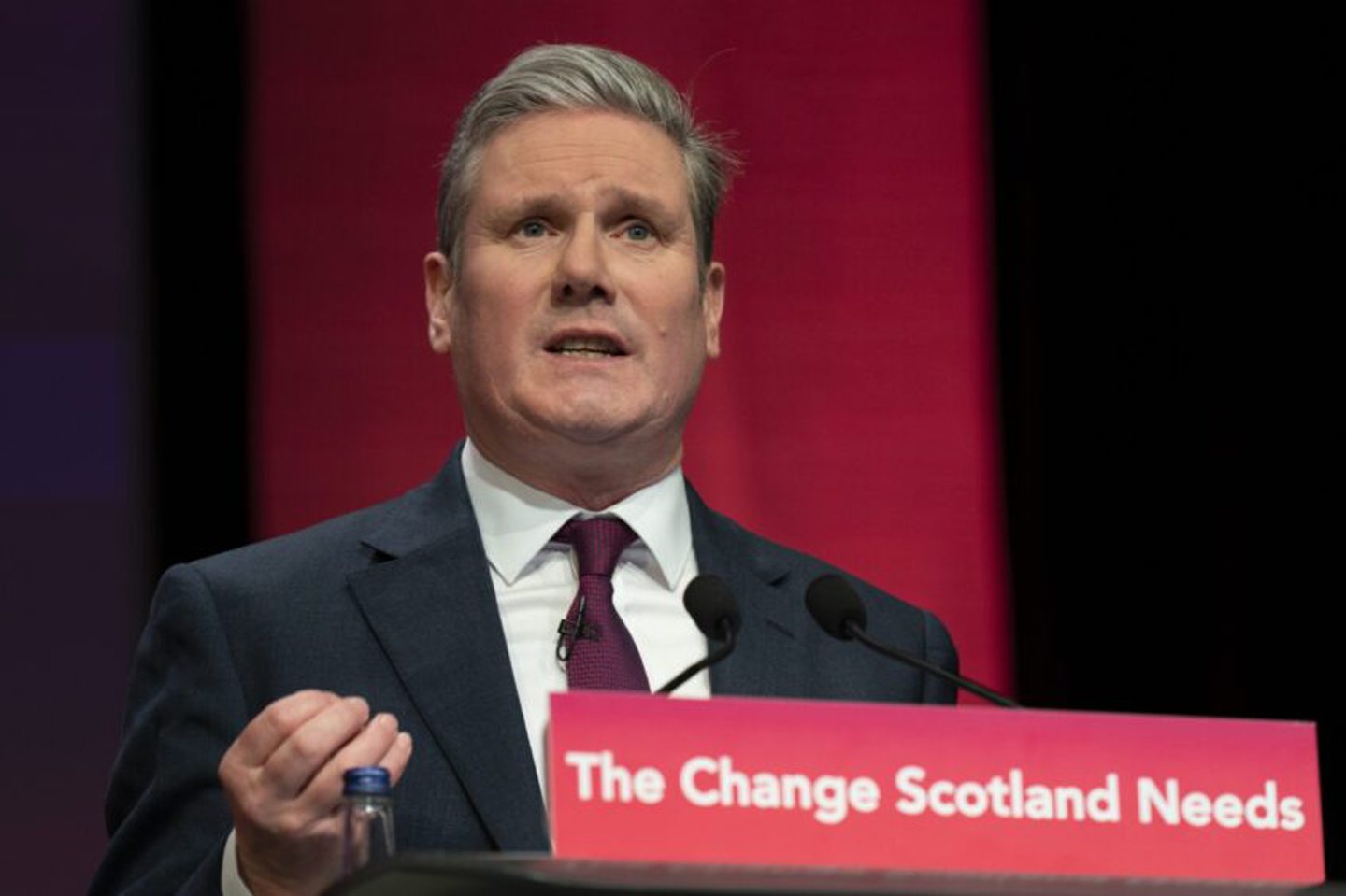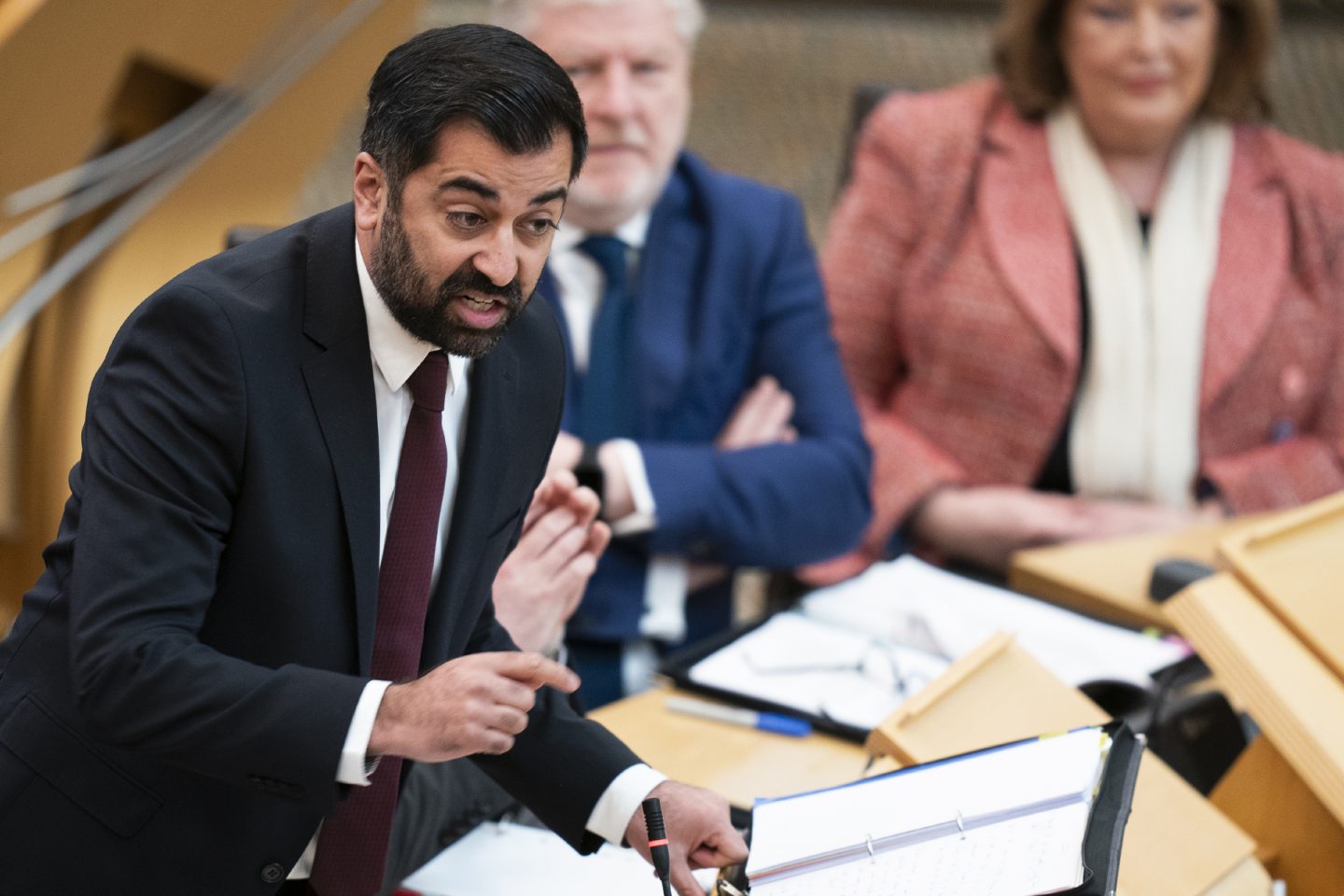
Trade body Offshore Energies UK (OEUK) has warned the energy transition “will fail” if the industry is undermined by policy, as it launches its general election manifesto today.
The group said its policy statement maps out a pathway for £200bn of investment in the UK sector this decade, something which has been cast in by doubt by signals from political parties across the Westminster benches.
OEUK said decisions made in the next parliament will be “felt for decades to come”.
It comes days after Labour leader, and likely the next prime minister, Sir Keir Starmer said he would extend and hike the windfall tax on the North Sea, which industry and analysts said would see tens of thousands of jobs lost due to Labour’s threat to remove investment allowances.
OEUK CEO David Whitehouse said he was “deeply saddened by the announcement”, but the sector “will engage with all political parties to make the case” for unlocking investment.
Last week Scottish First Minister Humza Yousaf challenged Scottish Labour Leader Anas Sarwar to a debate in Aberdeen running up to the election.
Speaking to Energy Voice, Mr Whitehouse said it is “essential OEUK would be involved in that conversation” as the manifesto asks politicians to choose a “homegrown energy transition”.
See the full interview here:
The OEUK manifesto
Among its manifesto – split between themes of skills, security and sustainability – are asks around commercial models for developing CCUS, hydrogen and offshore wind, as well as measures for ports, regulation and industrial strategy.
The asks include creation of a new regulatory body with oversight “across the entire energy trilemma”.
OEUK’s policy statement sets out that “the UK can become a leading green industrial power” but do so “companies must see the UK as an attractive country to invest in”.
It adds that “parliaments may thrive on opposition and argument, particularly in election year, big engineering projects only succeed through collaboration”.
“The transition to net zero will be the biggest engineering project this country has ever seen. It will fail if we undermine the industries, workforces, and communities whose skills will be vital for building our energy future.”
Windfall tax
It sets out a call to end the windfall tax before 2028, when it is currently expected to sunset.
The policy, brought in under the conservative government in 2022, has seen 90% of operators cut spending, with some cutting jobs.
Labour has gone so far as to say it would remove investment allowances, which OEUK said would see up to 42,000 jobs lost, and investment bank Stifel said a “best case scenario” is 20,000 jobs gone.
Mr Whitehouse said that the industry saw “unprecedented commodity prices” in the wake of the invasion of Ukraine and it was right for sectors to play their part.
“But as windfall conditions go, that windfall tax must go. And when you look at commodity prices today, they’re back in line with where they were pre-Ukraine.
“So we’re calling for the windfall tax to go. And we think that’s right. That means we can encourage investment into the sector, support our jobs, support our skills, support our important supply chain.”
Mr Whitehouse highlighted that profits are made internationally, “they’re not being made here in the North Sea”.
Asked whether Big Oil and international oil firms should make their North Sea profits transparent, he said: “I think I think transparency is good. I think it helps with the with explaining the north-east position where it’s clear what value is being made here in the in the North Sea. I think it helps for that case that now is the time where we need to unlock investment in the North Sea.
“Now is the time where we need to seek that investment, unlock that £200 billion and see that real value in terms of jobs, in terms of economic value up and down the country.”
New regulator, new strategy
OEUK is also calling for a new “independent statutory body” to be created, with powers and resource to oversee UK energy and net zero objectives.
Mr Whitehouse said: “What we’re talking about is an evolution of what we have in the UK. We have some great institutions.
“The Committee on Climate Change I think provides a is a valuable resource, but it’s focused purely on our climate goals. The Office of Budget Responsibility has a role to play in terms of understanding the value in our economy.
“What we’re calling for is a body that gives long term overview, sets out that long term path, but actually looks across the entire energy trilemma.
“So we’re looking not just at our climate goals, which are clearly important, but also ensuring that in doing that we deliver on good quality jobs, real value in our economies and real value in our communities.”
Mr Whitehouse said the North Sea Transition Authority (NSTA) is “there for the discussion” in that space.
Other items include a joined-up industrial strategy, inclusive of investment in grid infrastructure for offshore wind power.
That includes ensuring policies to ensure the energy transition takes place “with people, not to them” as regards onshore grid infrastructure. Mr Whitehouse said: “. I think there hasn’t been enough of a discussion in the UK about what is really going to be required.”
Election showdown in Aberdeen?
Last week at First Minister’s questions, Humza Yousaf challenged Scottish Labour leader Anas Sarwar to a debate in Aberdeen on oil and gas.
While Labour has come under fire for its taxation policies, the SNP has been accused of hypocrisy over its “presumption against” further North Sea exploration.
The Tories, meanwhile, are the party which introduced the windfall tax and plan to keep it in place for four more years, despite windfall conditions since falling away.
Asked if OEUK would participate in such a debate, Mr Whitehouse said: “I think it is essential OEUK would be involved in that conversation.
“I think it’s essential that the 400 members that we have actually, not just here in Aberdeen but up and down the country, are part of that conversation.
“And what I would say is our manifesto, is the path to a successful energy transition. I think it’s a really valuable contribution which shows how we unlock that investment, how do we build the skills that are required to make the best of it for the UK and Scotland.”
Recommended for you


 © Supplied by -
© Supplied by - © Supplied by DCT / Kenny Elrick
© Supplied by DCT / Kenny Elrick © Jane Barlow/PA Wire
© Jane Barlow/PA Wire